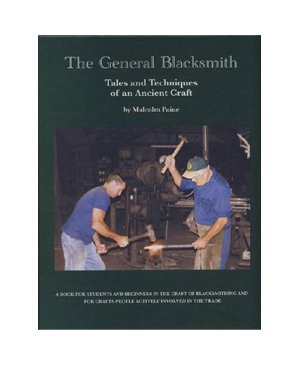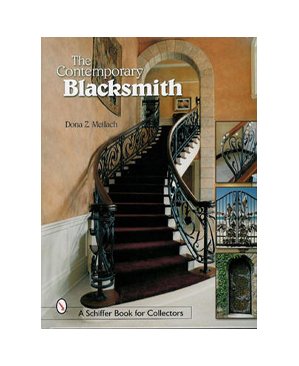Description
This set contains:
BASICS OF STYLE FOR ARTIST BLACKSMITHS: The man in the shop requires a book adapted closely to his requirements and gives him everything he needs to know. For his practical work, to distinguish the principal stylistic periods in general is sufficient.
The distinctions between early and late Gothic, early and late Renaissance, and between Italian, French and German Renaissance must be left for his later study, and would only be confusing in an introduction to style.
Until now, all of the published works on style and art history are either too general, or too scientifically detailed, often both. They are of little use to the practical craftsman. He must have the material of interest as briefly as possible, easy to understand and to visualize. The author has worked toward this goal.
Softcover, 144 pages, 8 1/2″ x 11″, fully illustrated.
CLASSICAL TECHNIQUES OF HAND FORGED IRON: In the early 1900s there was a rejection of Victorian style on the part of many creative blacksmiths. Led by Julius Schramm, some blacksmiths looked back to the ironwork of the Renaissance and the baroque periods.
Franz Kuhn in Germany, and Francis Whitaker in the United States both apprenticed with Schramm, and were strong influences in the rediscovery of the Renaissance.
Samuel Yellin, in his large Philadelphia shop, also looked to earlier periods, and worked with the tools, techniques, and traditions of the Renaissance.
Max Metzger saw the future of the blacksmith in this revival, and he supported the name “Artist-Blacksmith” to describe those doing creative work. Metzger said, “serious practice in freehand drawing is of basic importance” and asked that blacksmiths use the older traditions in original work.
You will find his teachings and ideas on these techniques in this book.
Soft cover, comb binding, fully illustrated, 8 1/2″ x 11″, 72 pages.
PATTERN BOOK FOR THE ARTIST BLACKSMITH: Reference works for Artist-Blacksmiths are rare; material on the production of patterns is virtually non-existent in recent publications. Thus it is most fortunate that this classic reference, Pattern Book for Artist-Blacksmiths, has been rediscovered and translated into English.
This outsized reference shows techniques that will be extremely useful for your work: how to prepare patterns (stencils) for calyx, rosettes, leaves, cartouche, and scrolls, in Gothic, Renaissance, Baroque and Rococo styles.
The Pattern Book for Artist-Blacksmiths is of great practical value. Metzger’s scrupulous exactitude in his drawings details the beauty and variations in design. Each design is clearly explained in the brief text.
Soft cover, comb binding, 10″ x 14 3/4″, 128 pages












